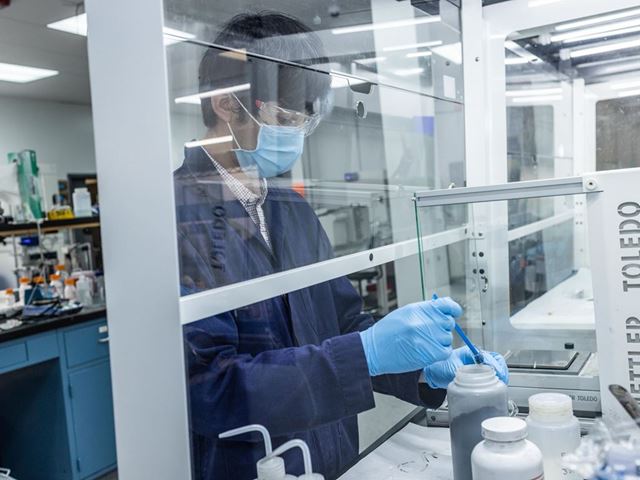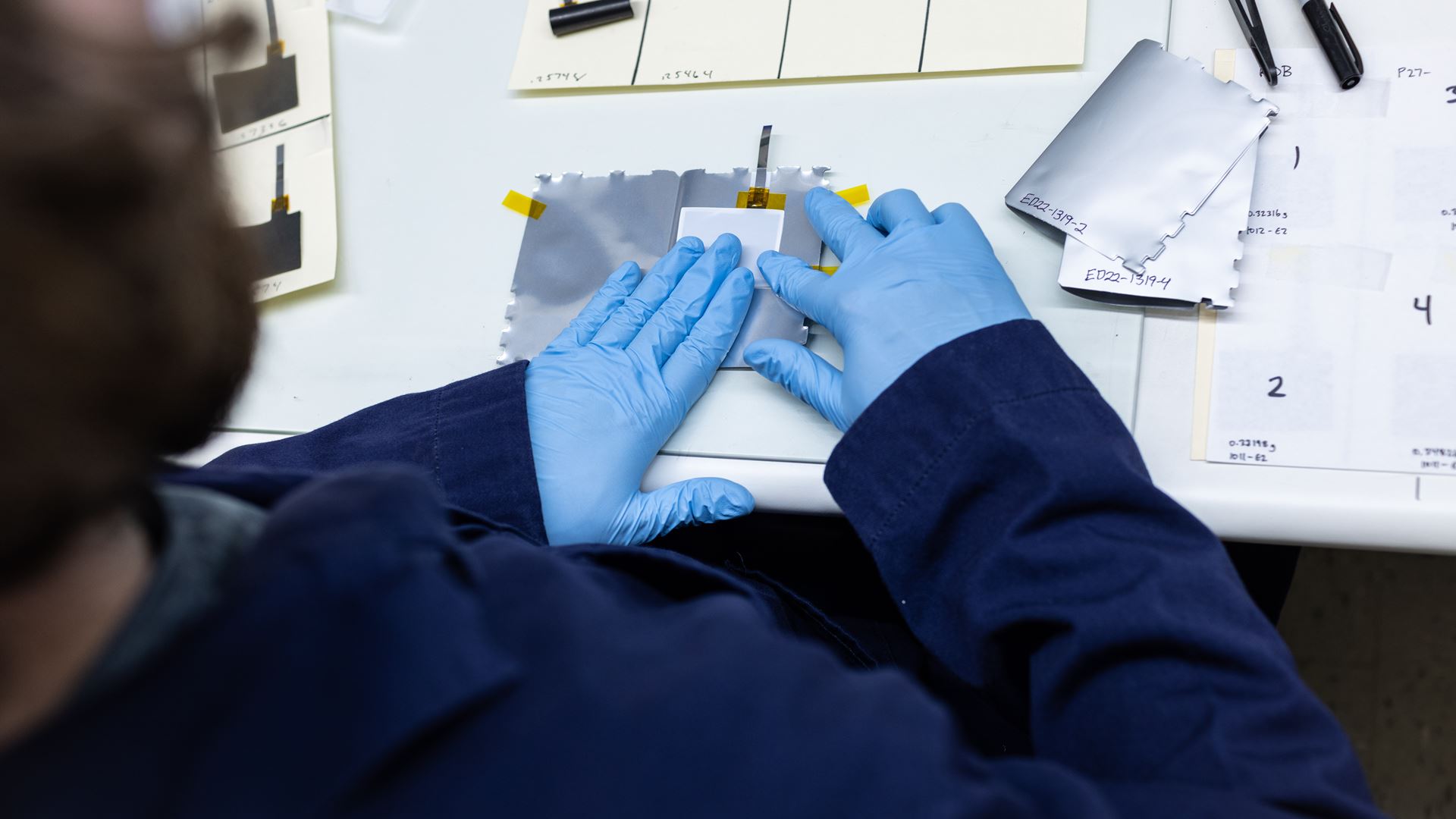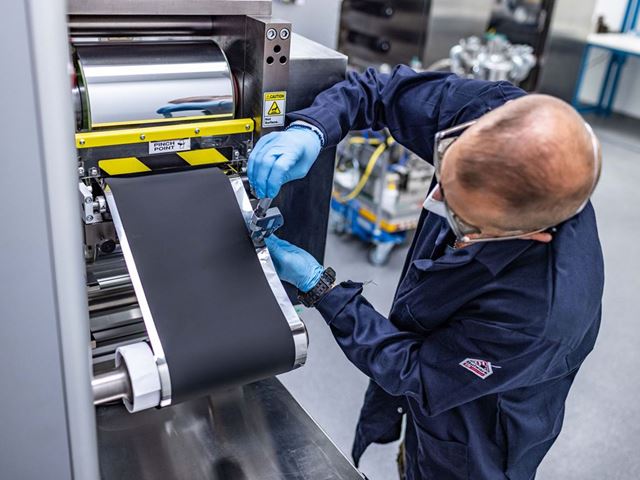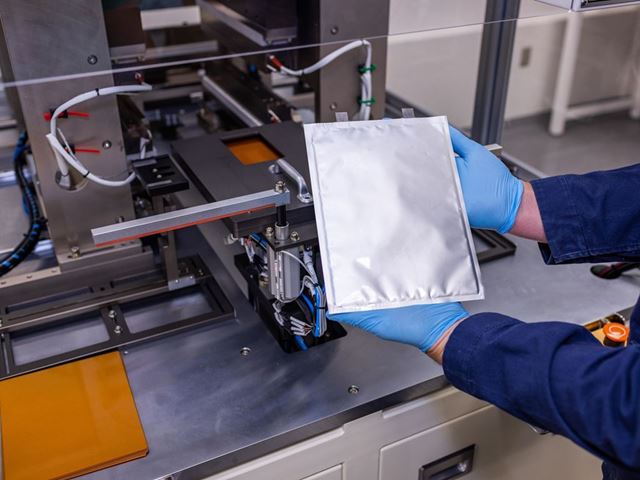
- Latest: Welcome to Auto Futures - Mobility News, Features, Exclusives and More...
- Latest: Mercedes-Benz Unveils the SUSTAINEER - an Electric Last-Mile Delivery Solution
- Latest: XPENG & Volkswagen to Jointly Develop Electrical/Electronic Architecture in China
- Latest: Honda Unveils Ye - its Next-Generation EV Series for China
- Latest: JLR Launches Portable Battery Energy Storage System Using 2nd-Life PHEV Batteries
- Latest: The US Startup Rolling out Urban Curbside EV Charging - Voltpost's CEO
Making the Non-Flammable, Non-Toxic, Affordable 'Model T' of Batteries - Alsym Energy CEO Mukesh Chatter
Lynn Walford
- Mar 21 2023

Alsym Energy started from scratch to make a new form of non-toxic, non-flammable and affordable batteries without lithium and cobalt. Auto Futures talked with Mukesh Chatter, President, CEO and co-founder of Alsym Energy. He reveals the secret sauce for a recipe for a greener future.
Chatter previously founded Nexabit Networks, which was acquired by Lucent Technologies, in 1999. He co-founded Axiowave Networks and NeoNet Capital before co-founding Alsym with Dr Rahul Mukherjee in April 2015.
Mission Toxic-Free And Non-Flammable
The company started out with a mission - to create a high-performance battery that is low-cost, non-flammable and uses non-toxic materials, says Chatter. "Those are the key considerations and what separates us from the rest of the folks working on lithium-ion batteries."
"Since we had the green field, we did not have the dependence on lithium with the organic electrolyte and all other variations and cobalt," says Chatter.
He states that his background with supercomputers helped the company, "come up with the right materials."
To make Li-on batteries toxic NMP (n-methyl-2-pyrrolidone) has to be fully absorbed in the plant. Alsym does not use NMP.
He notes that lithium-ion batteries release hydrogen fluoride gas when they burn and release hydrofluoric acid if the car is halfway submerged in water, such as flooding.
"Lithium-ion batteries have done a good job bringing the EV revolution where it is today. But the challenge is if there are one hundred to two hundred million cars overtime on the road, with those (toxic) attributes that could either blow up or have gasses coming out when they catch fire or leak hydrofluoric acid - our contention is that it is much better to make batteries with none of those characteristics," says Chatter.

Bringing Down The Cost of EVs With High Performance
Besides toxicity, lithium-Ion batteries are expensive. The Average cost of an electric vehicle is about $20,000 more than ICE vehicles costing around $59,000 -$60,000.
When Li-ion batteries cost 35-40% of the car cost it is difficult to make EVs affordable, says Chatter.
Another issue with Lithium-ion batteries is that range and performance are affected by heat.
"In India, the average temperature in summer is up to 50 degrees centigrade. Lithium batteries have organic electrolyte that tends to ignite or is more flammable around 60 degrees C. So when a car is standing there in the open space with outside temperatures at 50 degrees C it is easy to get 60 degrees temperature inside. Then the risk of blowing up a car goes higher. That has happened several times. In fact, in India, in the last few months, more than a hundred electric scooters have blown up because of the heat."
Alsym batteries are aqueous, and water is the primary solvent. They use manganese and metal oxides, he explains.
Alsym batteries do not have an organic electrolyte. It means it is a non-flammable electrolyte. So if there is an accident, it does not catch fire and hydrogen fluoride is not released, says Chatter.
Another advantage of the Alsym batteries is that they can be placed anywhere in the vehicle.
"Our battery is unlike lithium-ion, which generally goes at the bottom of the car with a titanium plate underneath for safety. Our batteries can go anywhere in the car, in the door well, because if it is hit, it does not catch fire. It does not have that flammability risk. In a ship, the battery can be in the engine room," said Chatter.
Non-flammable also helps makes the battery management system simpler.
"Using liquid organic electrolyte at 60 degrees C is much more prone to catch fire so they have to control the temperature much more tightly. We do not have to control it that tightly but yes, we do have to have cooling," said Chatter.
He says charging will probably average about 30 to 45 minutes to reach 80% of the charge.
Alsym batteries use about 95-97% of the same equipment as Li-on battery manufacturing. They are cheaper to make because they don't require a dry room. They do not need a clean room and do not need the absorption of NMP, adds Chatter.

The Future of Alsym Batteries
"So far we've been approached by three auto manufacturers. We've already signed a deal with one but, beyond that, three auto manufacturers from Europe and the United States, exploring potential relationships with us," says Chatter.
"Our goal is that those who want to buy a $10,000 electric vehicle should be able to do it. That is the mission we want to do what Ford did with the Model T - to make EVs affordable for everyone," he reports.
Alsym batteries will be about less than half the cost of LFP (Lithium iron phosphate batteries), effectively making electric vehicles more economically attractive than internal combustion engines, he adds.
"Our goal is to put the ice on ICE-internal combustion."
Based in Boston, Massachusetts, Alsym plans to manufacture batteries in the US and use readily available materials within the Free Trade Zone and friendly countries.

For Land, Sea And Storage
Currently, Alsym has its first prototype for grid storage, then it's working on prototyping for shipping, scooters and small vehicles.
Alsym is working with maritime shipping companies because shipping uses the dirtiest fuel, says Chatter. Several maritime boards are now saying that the ships within twenty miles of the port cannot burn dirty fuel, he warns.
He also reports that Alsym could save cumulative liabilities of the automotive companies. He cited the cost of replacing the GM Chevy Bolt was estimated at $1.8 Billion due to fire risk.
The Alsym batteries will also work well for energy storage. For example, in Sweden, the price of electricity was swinging from two cents per kilowatt hour to 50 cents per kilowatt hour on the same day. Battery storage helps to stabilize electricity prices.
"Whether it is solar panels or windmills, whenever God wants that to happen---that is when electricity is made, unless you back it up by storage. That is why we are in the grid storage business. One has to stabilize the price of electricity," explains Chatter.
He sees Alsym as part of a total system for decarbonization.
"We are in it together, whether we compete with the other companies or not. Ultimately, at the end of the day, there is only one planet. Everybody has to collaborate whether we like it or not. Just because our technology is there does not mean lithium-ion will not exist. I think we will all coexist because we share a shared goal," he concludes.
Popular Categories
